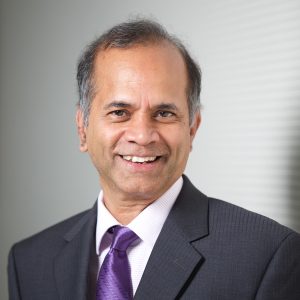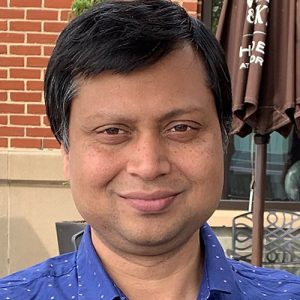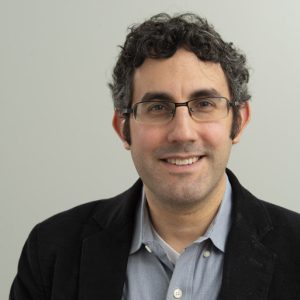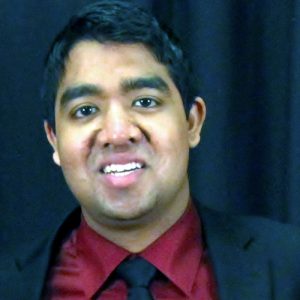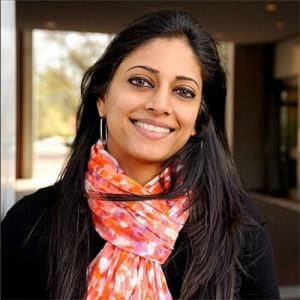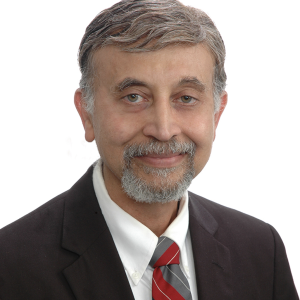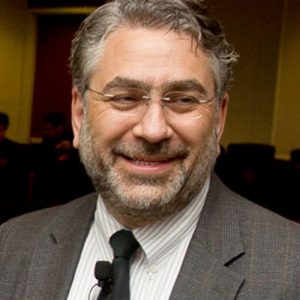Whiting School of Engineering
LISTED ALPHABETICALLY
Rama Chellappa, PhD
Bloomberg Distinguished Professor Whiting School of EngineeringRama Chellappa, a Bloomberg Distinguished Professor in electrical and computer engineering and biomedical engineering at Johns Hopkins University is a leading researcher in the area of artificial intelligence. His work in computer vision, pattern recognition, and machine learning have had a profound impact on areas including biometrics, smart cars, forensics, and 2D and 3D modeling of faces, objects, and terrain. His work in motion capturing and imaging shows promise for future use in health care and medicine. He joined Johns Hopkins after 29 years at the University of Maryland, where he served lengthy stretches as chair of the Department of Electrical and Computer Engineering and director of the Center for Automation Research. He is a member of Johns Hopkins’ Mathematical Institute for Data Science, the Center for Imaging Science, the Center for Language and Speech Processing and the Institute for Assured Autonomy. Chellappa’s research has shaped the field of facial recognition technology—developing detailed face models based on shape, appearance, texture, and bone and muscle structure. Under a recent program called Janus, he and his team have developed a high-accuracy face recognition system that serves critical needs for federal and commercial sectors. The team has also worked on modeling facial expressions, with potential for a variety of medical applications. He also is known as an expert in machine learning, a branch of artificial intelligence that instructs computer systems to perform tasks based on patterns and inferences. In one recent experiment, Chellappa and colleagues tested the skills of expert forensic facial examiners against the skills of machines; as it turned out, the best results came when both sides worked together. This research has implications for how machine learning algorithms can help doctors diagnose disease. Chellappa has also worked on gait analysis, which can apply to an enormous range of uses—everything from diagnosing Parkinson’s disease to human identification at a distance. He was born and raised in South India, near Chennai, and studied at the University of Madras and the Indian Institute of Science before attending Purdue University in Indiana, which was then building an international reputation for a branch of machine learning known as statistical pattern recognition. Chellappa is the 2020 recipient of the Jack S. Kilby Signal Processing Medal for his contributions to image and video processing, particularly face recognition. This is one of the top honors from the Institute of Electrical and Electronics Engineers (IEEE), where Chellappa is a life fellow and previously served as editor-in-chief of journals. Among many other honors, Chellappa has also won technical achievement awards from the IEEE Computer Society and the IEEE Signal Processing Society; the latter also awarded him with its highest honor, the Society Award. He earned his doctorate in electrical engineering there, studying under mentors including K. Fukunaga, R.L. Kayshyap, and K.S. Fu. (Some three decades later, Chellappa won the esteemed award named for K.S. Fu, from the International Association of Pattern Recognition.) His interest in biomedical engineering dates back to these years when he designed a cardiac pacemaker as his capstone project. During his doctoral studies, he also conducted research at the University of Maryland (UMD) with Azriel Rosenfeld, one of the founding fathers of computer vision. The mentorship launched his career in this field, which trains computers to identify, classify, and understand digital images. Chellappa later joined UMD as a professor in 1991, after 10 years at the University of Southern California.
- Data Science
- Digital Health
Ben Hobbs, PhD
Theodore & Kay Schad Professor of Environmental Management Whiting School of EngineeringCollaborating with Puneet Chitkara (KPMG, India) and Johannes Urpelainen (SAIS-JHU) on building grid operations and planning models for India. This builds on previous experience in South Asia with the World Bank.
- Energy
- Environment & Climate
Nilanjan Mitra, PhD
Associate Research Professor Whiting School of EngineeringGiven the population of India and problems associated with drug delivery/vaccination using needles, would like to research upon and develop innovative drug delivery/vaccination process which does not use needles and can be delivered in mass with low cost.
Keeve Nachman, PhD, MHS
Robert S. Lawrence Professor and Associate Director of the Johns Hopkins Center for a Livable Future; Associate Chair of Environmental Health and Engineering; Co-Director of the Risk Sciences and Public Policy Institute Johns Hopkins Bloomberg School of Public HealthWhiting School of Engineering
Dr. Keeve Nachman is the Robert S. Lawrence Professor and Associate Director of the Johns Hopkins Center for a Livable Future. He is also the Associate Chair of Environmental Health and Engineering at the Johns Hopkins Bloomberg School of Public Health, and the Co-Director of the Risk Sciences and Public Policy Institute. Keeve has more than 20 years of experience conducting research and teaching in the field of food systems, environmental health and risk assessment. His research focus is the application of the risk sciences to decision-making in the context of diet, drinking water, soils, dust, biosolids, and other human exposures. He has published on an array of food systems and environmental health topics, including food- and water-borne chemical and microbiological hazards, epidemiologic investigations of agricultural communities, soil exposure factors, and the use of epidemiology and computational toxicological methods in risk assessment.
- Environment & Climate
- Water & Sanitation
Kunal Parikh, PhD
Assistant Professor Johns Hopkins School of MedicineWhiting School of Engineering
Dr. Parikh leads the Global Institute for Vision Equity (GIVE), an initiative that partners with high volume, social-justice driven eye care systems across India to enable equity in eye care globally through development and translation of novel solutions addressing critical needs in ophthalmology and designed for the patients, care providers, and the context of care in under-resourced settings.
- Digital Health
- Eye Disease
Sridevi Sarma, PhD
Associate Professor in the Department of Biomedical Engineering and Vice Dean for Graduate Education at the Whiting School of Engineering Whiting School of EngineeringSridevi Sarma, associate professor in the Department of Biomedical Engineering and vice dean for graduate education at the Whiting School of Engineering, develops computational, data-driven, and biological approaches to advance the knowledge and treatment of diseases of the nervous system including epilepsy, chronic pain, Parkinson’s disease, and insomnia. She also harnesses dynamical systems and control theory to understand how the brain governs complex behaviors, including motor control and decision making.
- Data Science
- Engineering
Nitish Thakor, PhD
Professor of Biomedical Engineering Johns Hopkins School of MedicineWhiting School of Engineering
Dr. Nitish Thakor is a professor of biomedical engineering and neurology at the Johns Hopkins University School of Medicine. He also has an appointment in the Johns Hopkins Department of Electrical and Computer Engineering. He conducts research in the fields of Biomedical Instrumentation, Neuroengineering, Neurprosthesis, and Brain-Machine Interface. Dr. Thakor directs the Laboratory for Neuroengineering and is also the director of the NIH Training Grant on Neuroengineering. Presently he is also a co-director of the Carnegie Center at Johns Hopkins School of Medicine. Previously, for 10 years he founded and led an Institute, SINAPSE, focused on neurotechnologies, at the National University of Singapore. He is actively engaged in developing international scientific programs, collaborative exchanges, tutorials, and conferences in the field of biomedical and Neuroengineering. Dr. Thakor teaches Principles of Design of Medical Instrumentation and Rehabilitation Engineering courses and directs laboratories both in engineering school and the medical school engaged in many sensors, devices, and technologies through design, development, and experimentation, as well as clinical translation. For more than a decade Dr. Thakor collaborated and contributed to a project on “Revolutionizing Prosthesis, in collaboration with a multi-university consortium funded by DARPA. They developed the next-generation neurally controlled upper limb prosthesis. Presently, his team is developing both noninvasive and invasive neural and muscle interfaces, novel human-centered prostheses, sensors, and machine intelligence in the neuroprosthesis system. He received his undergraduate degree from the Indian Institute of Technology, in Bombay, India. He earned both a M.S. in biomedical engineering and a Ph.D. in Electrical and Computer Engineering from the University of Wisconsin-Madison. After 2 years as a faculty at Northwestern University, Dr. Thakor joined the Johns Hopkins faculty in 1983. Dr. Thakor is a co-author of more than 450 refereed journal papers, 20 patents, author of a comprehensive 4 volume Handbook of Neuroengineering. He has previously served as the editor-in-chief of Medical and Biological Engineering and Computing and IEEE Transactions on Neural Systems and Rehabilitation Engineering. In addition, Dr. Thakor is a recipient of a Research Career Development Award from the National Institutes of Health and a Presidential Young Investigator Award from the National Science Foundation and is a Fellow of the American Institute of Medical and Biological Engineering, IEEE, Founding Fellow of the Biomedical Engineering Society, and Fellow of International Federation of Medical and Biological Engineering. He has been elected as a Fellow of the National Academy of Inventors.
- Engineering
Youseph Yazdi, PhD, MBA
Director, Center for BioEngineering Innovation & Design Johns Hopkins School of MedicineWhiting School of Engineering
India today is a wellspring of creative problem-solving in health care. At Johns Hopkins Center for Bioengineering Innovation & Design (CBID), we have partnerships in India to innovate in eye care, in spine surgery, in telemedicine, and several other areas.
- Digital Health
- Engineering
- Medicine
